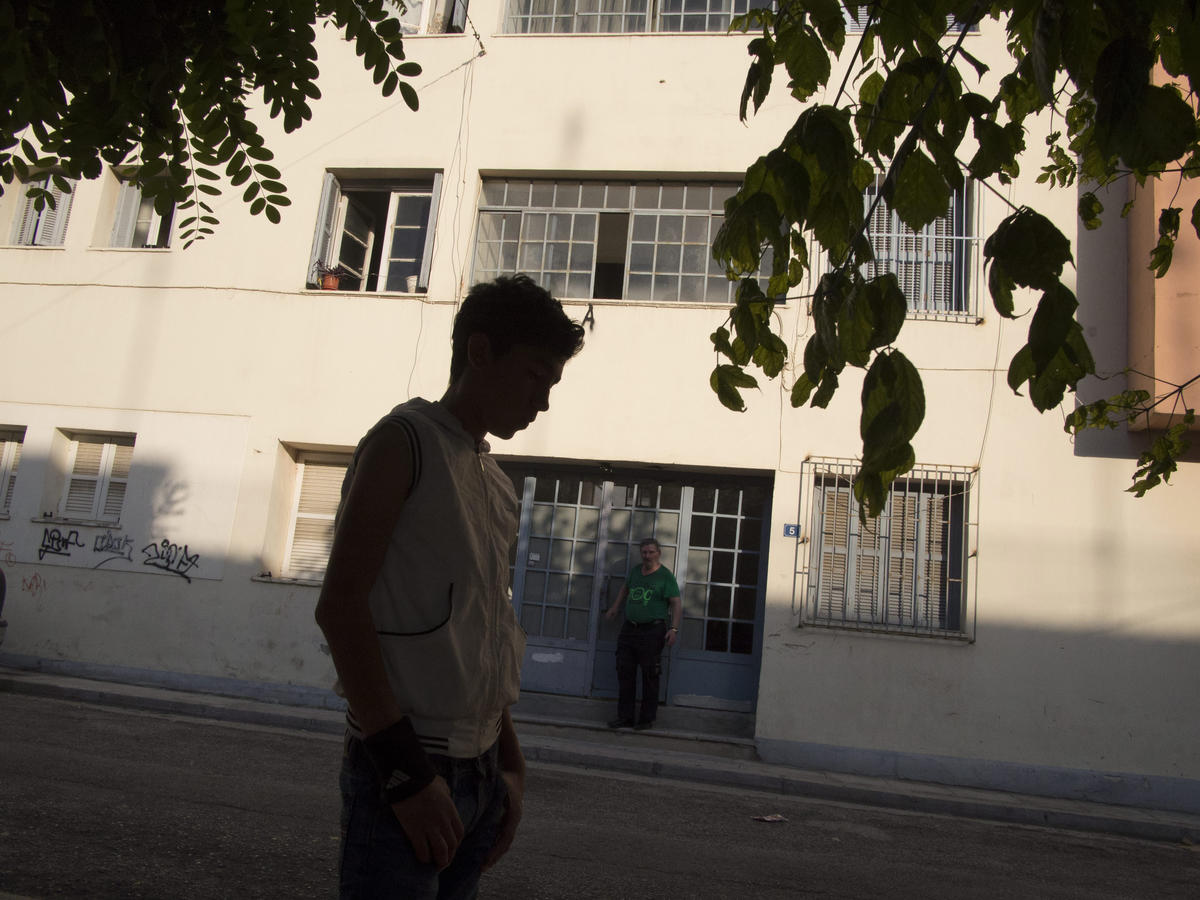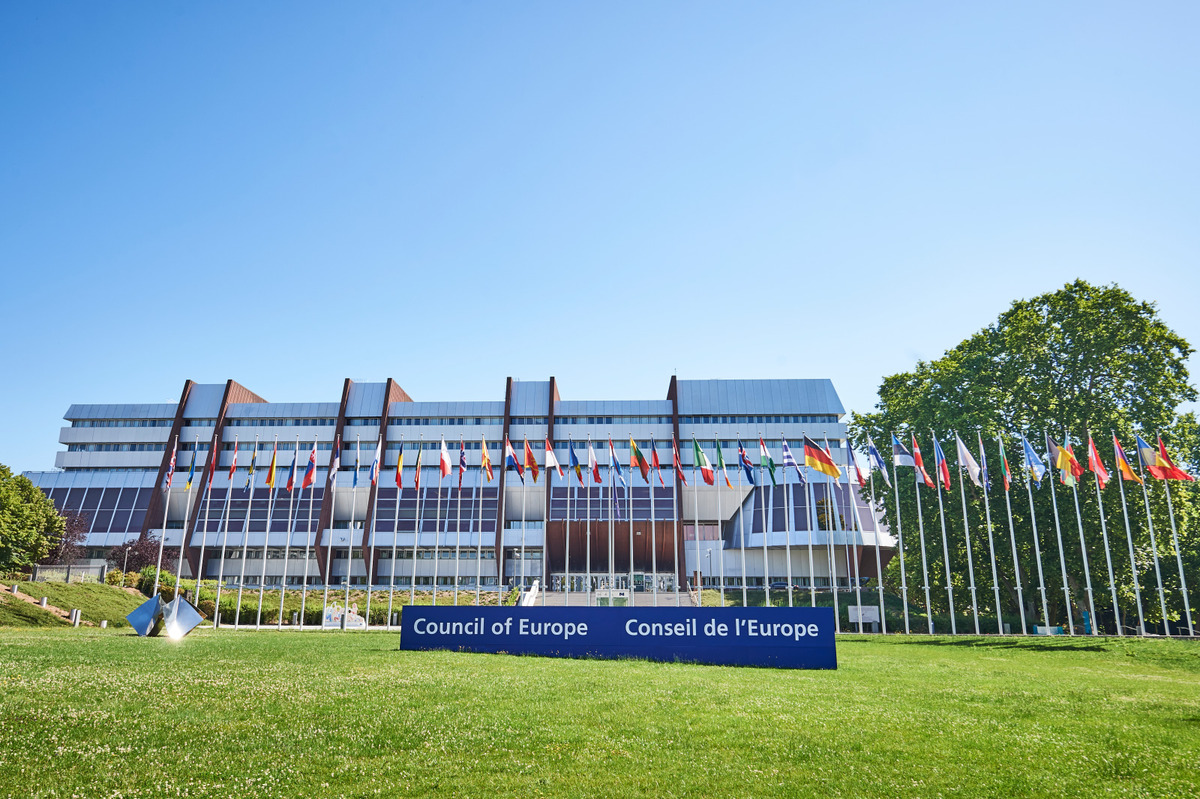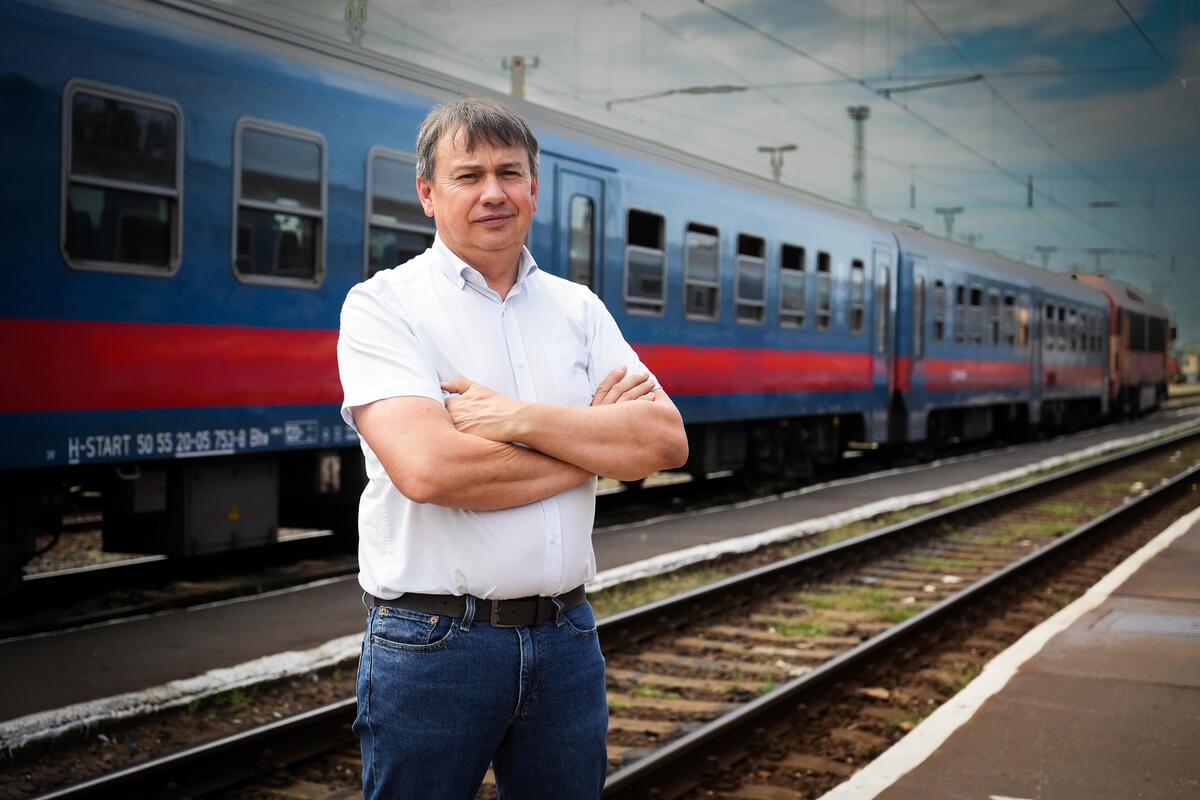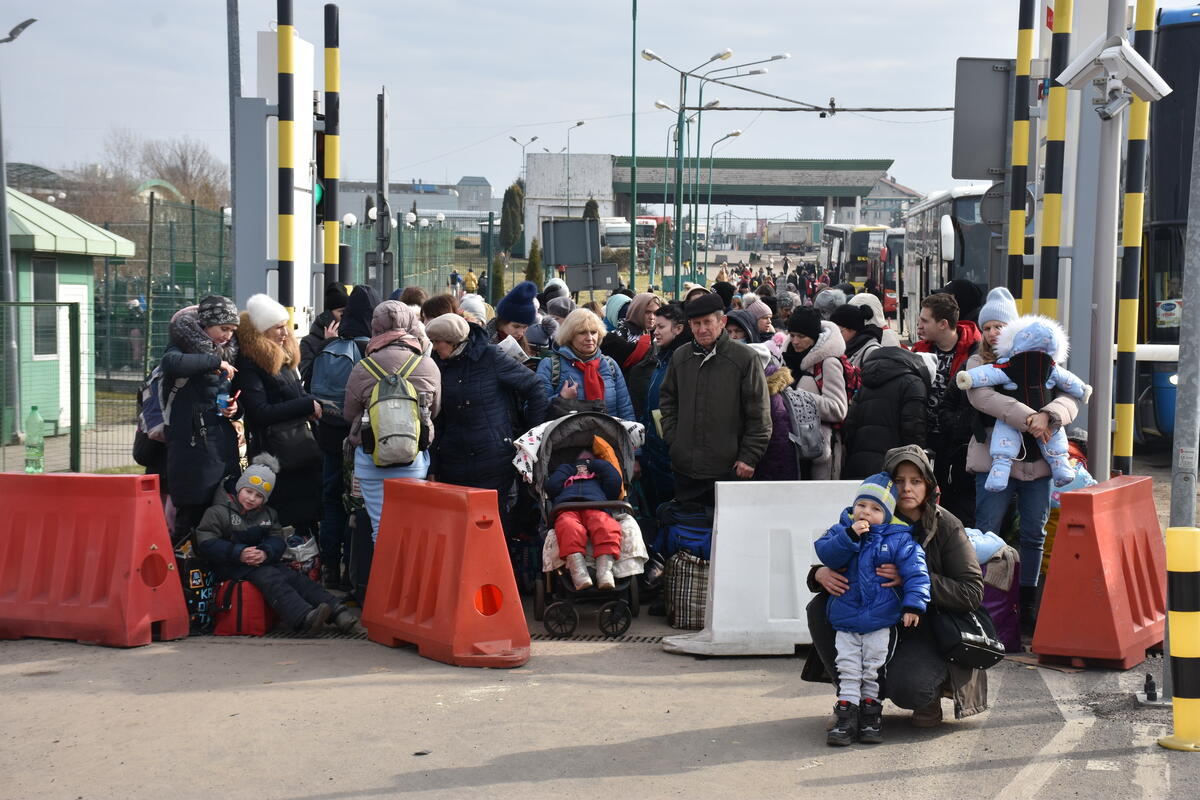On visit to Hungary, UNHCR Chief calls for end to detention and greater solidarity with refugees
On visit to Hungary, UNHCR Chief calls for end to detention and greater solidarity with refugees
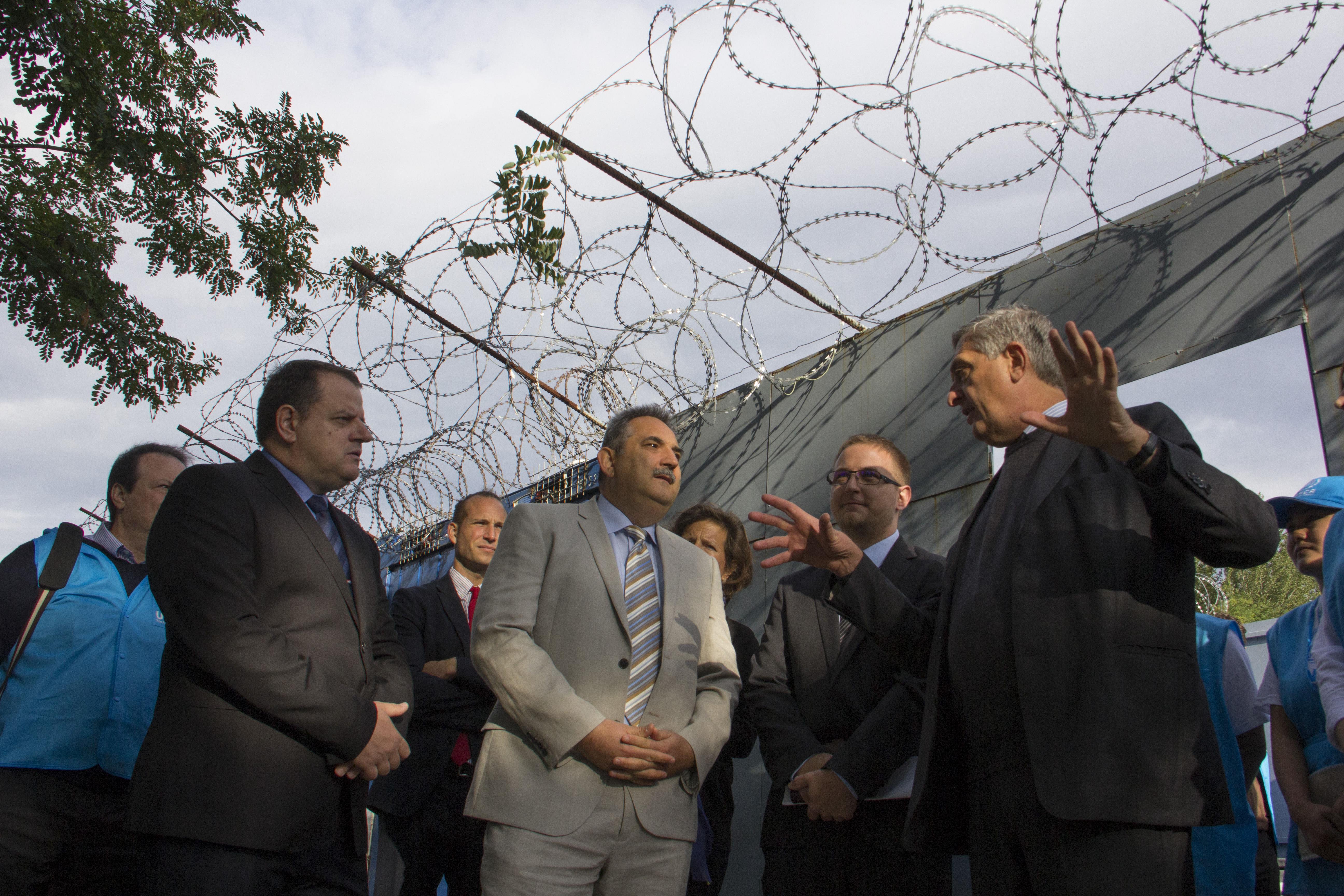
BUDAPEST, Hungary - UN High Commissioner for Refugees Filippo Grandi Tuesday called on Hungary to improve access for people seeking asylum and to do away with its so-called border “transit zones,” which he said are in effect detention centres.
He made the comments at a press conference in the Hungarian capital after a visit to one of Hungary’s two transit zones, where officials explained that about ten asylum-seekers per day are admitted into the country.
“If you put together restrictions to access to territory - the use of detention for asylum seekers and the low recognition rates, coupled with the absence of any investment to encourage integration of those recognized as refugees - my fundamental impression is that there is an effort to limit severely the number of people allowed to come to Hungary to seek protection,” he told journalists. He said the rows of razor wire topping the rows of fences at Roszke convey “a symbol of rejection."
“Refugee protection and security of the country are not incompatible.”
In meetings in Budapest, with Minister of Foreign Affairs Péter Szijjártó and Interior Sándor Pintér, Grandi stressed that the UN Refugee Agency recognizes the right of every country to protect its borders. He is on a two-day visit to the Central European country.
But, he said, “refugee protection and security of the country are not incompatible.” He also emphasized the importance of European solidarity and of all EU member states, including Hungary, taking part in the program to relocate asylum-seekers from Greece and Italy.
He reflected concern for the children he had met in the morning who were being kept in the “transit zones” while awaiting a decision on their asylum applications.
“Children, in particular, should not be confined in detention,” Grandi said Tuesday after touring the Röszke transit zone on Hungary’s border with Serbia during a two-day visit to the Central European country. He noted that children younger than 14 who arrived in Hungary alone are transferred to an open centre where they are getting adequate care and encouraged Hungary to maintain such a facility while expanding it to include older unaccompanied children.
“Seeking asylum is not a crime,” he said. “The refugees I met are simply in search of safety in Europe and now find themselves extremely anxious about their future.”.” He appealed to the Hungarian government to ease constraints on its asylum system so that asylum-seekers entering the country face no obstacles and can have their cases heard in line with Hungary’s international commitments.
In his morning visit to Röszke, Grandi met two 14-year-old boys who found their way to Hungary on their own. Ahmad, from Aleppo, Syria, fled war in his homeland when he was just 12 and arrived in Hungary one month ago after a harrowing journey.
He told Grandi he hoped to receive asylum here because his family is in danger. If he gets refugee status, he hopes to rescue them by applying for family reunification.
“Grandi saw how refugees in live in containers in small locked compounds.”
Suleyman, from Kabul, showed a large scar on his arm – the result, he said of a Taliban attack back home. He said he fears being forced to return and would like to stay in Hungary.
Grandi saw how refugees in Röszke live in containers in small locked compounds, and heard that medical care and other services are provided. He dropped in briefly on an informal Hungarian class for children than just started a few days earlier.
Asylum-seekers complain mostly of the lack of information about the asylum process and of being penned up without freedom to move beyond the many razor-wire fences.
Over the last few years, Hungary has systematically constrained its asylum system through restrictive legal measures and has virtually eliminated state support for recognized refugees to get by and integrate. Hungary has also established physical barriers, including razor-wire fences along its borders and restricts access to asylum by allowing only ten asylum-seekers per working day into the country. “When I was standing at the border fence today, I felt that the entire system is designed to keep people in need of international protection out of the country, preventing many from making a legitimate asylum claim,” Grandi said.
Once asylum-seekers get into one of Hungary’s two transit zones, refugee recognition rates are low, even for people fleeing conflict-ridden countries like Iraq and Afghanistan. Hungarian officials told the High Commissioner they are working on improving procedures.
During his visit, Grandi also visited UNHCR’s Global Service Centre where some 500 staff members work. These include about 300 Hungarian nationals who provide essential support to UNHCR staff members protecting refugees around the world. He expressed his gratitude to the Hungarian government for its support to the Centre and to the staff who are devoting their professional skills to serve refugees.


